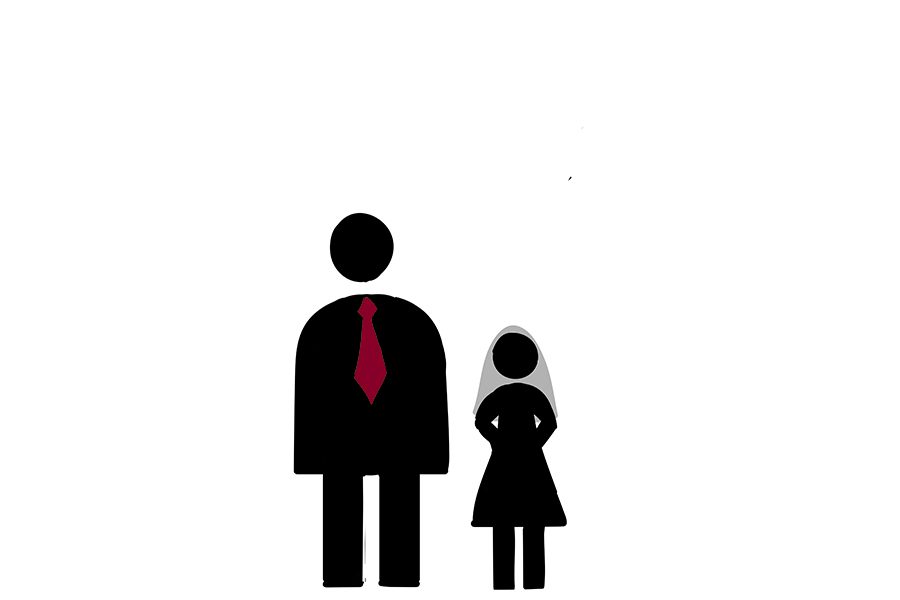States must protect children by repealing child marriage laws
In today’s news cycle, the average lifespan of any discussion has become increasingly short, displacing the desire for meaningful discussions. People have lost any semblance of an attention span, and in this constant tornado of insane stories, issues that deserve much more of a reaction go completely unnoticed. One of those problems that somehow still exists is child marriage, and the fact that people are not talking about it every night is nothing short of insanity.
What do the #US and #Eritrea have in common? #Childmarriage is legal. https://t.co/m9XvNbMWqN pic.twitter.com/A5bOqsEIiR
— Apolitical (@apoliticalco) March 29, 2018
In the United States, there have been more than 200,000 child marriages since 2000, many of which were between a minor and an adult. Of these marriages, 87 percent of the minors were girls, and, while a majority of the girls were older than 16, more than 1,000 were younger than 14.
Some states have become what is essentially a sanctuary for those looking for a child bride thanks to their archaic laws. While most states require some form of permission from the courts or parents, other, more forward-thinking states have decided to go in a completely different direction. States like Missouri have decided that, while not old enough to legally drink, drive or even file for divorce, a person can get married without the consent of any outside party at the ripe old age of 15.
In a weird, Twilight Zone-like string of events, the recent poster child for sanity and abandoning this situation has been Florida. Florida, the state usually in the news for stories like cooking meth at a Walmart, passed a law prohibiting the marriage of anyone under 17 following the outrageous story of an 11-year-old who was forced to get married after being raped two years prior.
This law initially faced some pressure from Republican legislator George Moraitis, who was worried the bill would unduly affect those who are not in an abusive relationship and wish to be married. The rest of the state representatives realized that Moraitis’ argument was inept and that the bill would protect children from being coerced into marriage due to a pregnancy, so they passed the bill, 109-1.
A woman who was 11 when she was forced to marry her rapist has worked for six years to ban child marriages in Florida. On Friday, she was hailed as a hero. #WhoRunsTheWorld? https://t.co/s8NEZr0GUX
— Ahmed Shihab-Eldin (@ASE) March 11, 2018
While some states have made important strides in the fight against abusive child marriages, others have done nothing due to partisanship and petty politics. In Tennessee, House Republicans tried to kill a bill aimed at prohibiting child marriages because it would interfere with a lawsuit countering the Supreme Court’s legalization of gay marriage back in 2015. These state representatives, who so often spout now-obvious lies about family values and the sanctity of marriage, are willing to let adults marry children as young as 13 because they don’t like that same-sex couples have equal rights.
Louisiana also has an unfortunate past with child marriage because of antiquated laws. As it stands, the law allows for the marriage of minors with the given consent of a parental figure, and in cases younger than 16 an additional court authorization. One still needs to be 18 to file for a divorce, however. The state, like many others, struggles to update the laws to protect the children who are too young to protect themselves.
As seen too often before, it appears any person who strives for change is met with opposition for no reason other than partisanship. Hopefully, by looking at Florida as a role model, states like Louisiana will see a possible way of changing the laws without attracting the attention of those who wish to do nothing more than obstruct their political rivals.
This is an opinion article and does not reflect the views of The Tulane Hullabaloo. Jonathan is a sophomore at Newcomb-Tulane College. He can be reached at jkrantz@tulane.edu.
Your donation will support the student journalists of Tulane University. Your contribution will allow us to purchase equipment and cover our annual website hosting costs.



